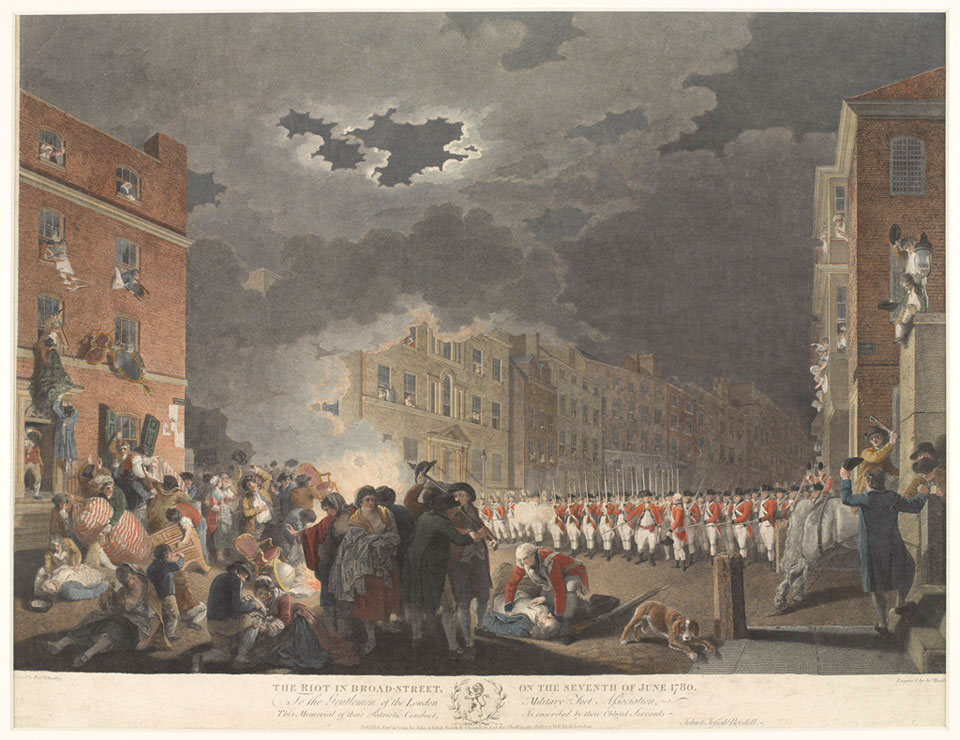Zero Zone: Artful Noir That Asks a Serious Question
February 7, 2021

Some books capture your imagination; Zero Zone locked mine in an art gallery. An adroit literary thriller, its prose has a clean, well-lit spaciousness, yet the sensory images are so rich that every page is splashed with color. Scott O’Connor’s main character, Jess Shepard, is an artist who has been through her own private hell, and her installations (which are brilliantly creative; O’Connor might have a fallback career) evoke powerful emotional responses. After a group of people, each lost and grieving in their own way, shut themselves inside her latest installation with tragic consequences, she needs to find out why. And we need to decide if she, the artist, is responsible for the way her work affects others.
Setting psychological influence aside for a second, how much political influence does art wield?
This idea of “I’m going to write this thing and it’s going to change the world”—I don’t think that’s usually the way. But art can expose us to new things. It can create empathy. I know it has in me. In fiction, which is sometimes not as outwardly political, the politics comes from the intrinsic nature of fiction, its focus on the dignity of the individual. Each person’s story is worth telling. Interior lives are important. Secrets are important.
Does art have to be good to be influential?
[He laughs.] Oh, no. Some of the worst art has probably has some of the biggest cultural impact. Sometimes it speaks to people’s fears or prejudices in a way that doesn’t challenge them but reinforces them: You’re right to be afraid of this. You’re right to hate this, or to hate this person. You don’t have to be ashamed of this. Sometimes that kind of work finds a ready audience that’s kind of primed. We’ve had that for the last four years.
Your novel asks how responsible an artist is for the consequences of their work. Where did you land?
I don’t know! One of the things that convinces me what I’m working on is worth working on—which isn’t always the case—is that there’s an animating question or problem I don’t know the answer to, and part of the engine of the story is to explore that. But I’ve finally come around to the idea that I don’t necessarily need to answer that question. For one thing, it would be incredibly presumptuous. Most of the things worth being concerned about, one person is not going to solve. But one of the things that troubles me is the sometimes knee-jerk reaction of “No, artists aren’t responsible at all,” which doesn’t really wash. When someone has a great reaction to our work, we’re more than happy to take credit. But what if someone says, “This book brought up a lot of things I wasn’t ready to face, and it made life hard for me for a while”? The last thing I want to do as an artist is cause somebody harm. And I’ve certainly had engagements with art that weren’t pleasant and that I kind of wished hadn’t happened.
Why give your animating question this particular shape?
I tend to be interested in subcultures, in things that are just to the side of everyday life, whether that’s the art world or, in my previous novel, the intelligence community. I’m interested in subcultures and how they affect all of us, even if we’re not aware of them. And I tend to be most interested in characters who are on the margins and can either tip one way or the other, tip into more danger and marginalization or tip into rejoining a community. They are at that crisis point. They have been pushed to the outer margins of society, and this is the moment where they can either fall off entirely or find their way back.
How do you make us care about every character? I was never disappointed when the point of view switched, which for me is rare.
That’s something I work at. You can kind of feel it when you reread drafts: Where am I skimping on a particular character, shortcutting things? Part of it is trying to give as much attention to each character is possible, and some come easier than others. I don’t judge characters, though. For them to work for me as a writer, I really have to care about them and believe in them, even if what they are doing is something in my real life I would think is wrong or harmful or unethical. As a writer and as a reader, I don’t like villains. That tends to flatten characters out. The idea that people do awful things because there’s some kind of intrinsic evil character trait—I’m not sure I believe that. I have to be there with the character; I have to understand what they need and the pain they’re in and how that’s shaping their behavior. It leaves you in this weird position where you’re defending terrible behavior!
Would you write a character who’s a sociopath?
Write empathetically about a character without empathy, you mean? Maybe.
Why choose the late Seventies as your setting?
The art world, especially the West Coast art world, hadn’t yet exploded into the art market we’ve come to know. That comes in the Eighties, when a lot of Wall Street money starts to flood the art world, and you have art celebrities and art superstars. So the late Seventies was the last time before the spotlight was shone. And it was after the Sixties, and people were looking for some kind of spiritual saving. Especially on the West Coast, you couldn’t throw a rock down the street without hitting four or five churches that were probably kind of culty, some guy with long hair and no shirt declaiming something. Trying to set that up as the ocean these characters were swimming in was a way to make what happened to these characters in Zero Zone feel more plausible.
Are you kidding? Look how many people believe the QAnon conspiracy.
[Laughs.] Yeah, maybe it doesn’t matter.
Zero Zone is being described as noir—do you agree?
There are definite elements. Jess as unlikely detective, knocking on doors to try to find information. Jess as kind of a loner, somebody so driven that they’ve cut people off from their lives. Also, it’s in L.A., which is always nicely associated with noir because of the contrasts—how beautiful the weather is, and under that, this sense of disquiet or violence.
Your prose is cinematic, and you have written quite a bit for tv and film—has that helped you write fiction?
I’ve had periods where I’m working on a screenplay in the morning and a novel in the afternoon, and when it’s working well, they inform each other. The script reminds me to be a little more efficient where I can, and the novel reminds me to keep digging deeper. But they work in very different ways. TV is a passive medium. We watch a completed vision; we’re getting what they’re giving us. A novel is a joint effort between a writer and a reader. There’s a promise made: If I can interest you, then you’re going to have to do some of the work. As much as I love film and tv, there is an intimacy between reader and writer that I’m very grateful for. It’s an immersive experience—and an engaged audience.
The book is not in any way grim or depressing, and it could have been. How do you manage that?
I’m interested in trying to face difficult things, but I have to have some hope, otherwise why am I doing it? That hope might come through in the character, and it also might come through in the sense that if I can look at these things as plainly and honestly as I can, some good might come out of it.
Also, Jess is not the least bit self-destructive.
Well, she’s experienced beauty. She’s experienced these transcendent moments that also go hand in hand with the most frightening moments of her life. One of the things that drives her is not just I’m responsible for what happened, it’s wanting to know, Did you feel something like what I felt? Because I had a pretty extreme reaction, too, and I’ve spent my entire life trying to create these experiences.
I loved her previous art installations. What inspired you?
That was one of the more fun aspects of writing this book, and one of the great cheats, in that I didn’t have to actually build them. It was really freeing to coopt the best parts of that job, the dreaming and the imagining. I consulted with visual artists or installation artists—Could this work?—but if you built them according to the specifications in the novel, I don’t know if they would work the same way!
How do you decide how much we need to know about each character?
I write way too much, pages and pages where I’m figuring out who they are and how to get into their head and their body, and then I have to cut it all back. I always tell students that writing is a pretty inefficient art form; there’s a lot you don’t end up using, and you have to be okay with that. For me, it’s a matter of spending enough time with the character on the page that eventually I’m able to write about them in a more concise manner. It’s like getting to know a real person: The better you know somebody, the easier it is to describe them. Even if you now see how complex they are, you can distill it better. The challenge is not overloading a reader in those first ten pages. You have to figure out what the reader needs to know right now, and what they can discover as the story goes on. But that comes from early drafts where the first hundred pages are just somebody making a coffee.
I have to ask—and this is not a spoiler—is Tanner sane?
I think so—as much as anybody. He lives in an insane world, and he lives in a world that has abused him consistently from the beginning. All four of these characters are people who need help, and they all thought Jess’s art was the thing that was going to help them. He’s an abusive character, but it comes out of the life he’s had. He’s as sane as the world he lives in.
How do you explain his charisma?
That was something I thought about a lot. For me, it’s his honesty. His willingness to expose all the pain he’s been through so the people listening feel like they are being seen. He’s able to express his pain, grief, and anger in a way that other people connect with: “Here’s what’s happened to me. Here’s the world I live in and the world you live in. It shouldn’t be this way.”
Read more by Jeannette Cooperman here.







